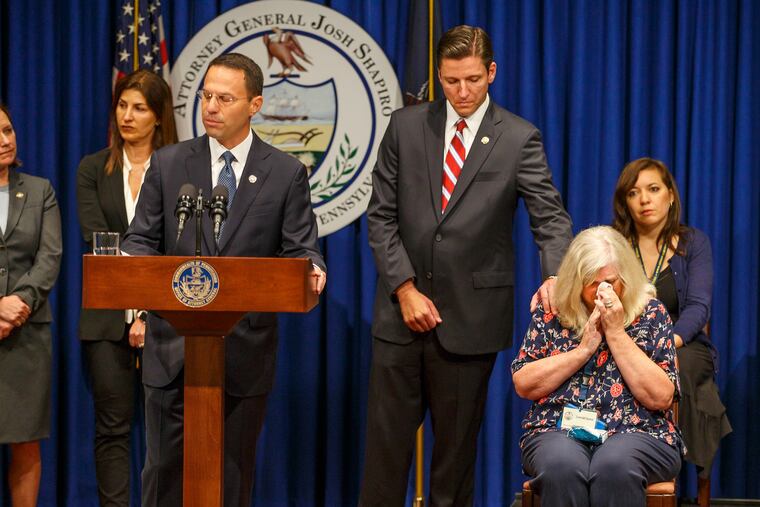Grand jury reports have proven to be a tool for justice in Pennsylvania — ask the Catholic Church | Editorial
Notable grand jury reports detailing the Bonusgate and Computergate scandals landed like bombshells when they were released.

Last August, Attorney General Josh Shapiro unveiled a list of more than 300 catholic priests who are accused of preying on children — many by name — that were brought to light in a statewide investigating grand jury report. The list was the result of a two-year investigation and published as a part of a 1,356-page report documenting decades of abuse and cover-up by the church. The report was only possible because Pennsylvania is among the 30 states that allow grand juries to publish both presentments — recommendations of criminal charges — but also reports.
Last week, the state legislature passed three bills based on the report’s recommendations that expand the civil and criminal statute of limitations for child sexual abuse. The day after, a Task Force of the Pennsylvania Supreme Court recommended that the state abolish reports like the one that led to the clergy abuse reform.
In 2017, the state Supreme Court impaneled a seven-member Investigating Grand Jury Task Force to identify needed reforms in the grand jury process. The task force made 37 recommendations, primarily procedural. The call to abolish grand jury reports — centered on the concern that the practice of naming individuals in the reports robs the accused of due process — divided the task force.
The concerns of the task force are valid, but could be addressed to ensure the accused has a chance to respond. This tips the balance in favor of keeping such reports.
Individuals named in a grand jury report are not afforded the right to present exculpatory evidence, cross-examine witnesses, or call witnesses on their behalf; those rights only follow if a prosecutor brings charges. Because grand jury reports are likely to represent only the views of the prosecutor, the four anti-report members contend, legislative hearings and oversight bodies such as the auditor general and inspector general are more appropriate venues to unearth malfeasance.
» READ MORE: Clergy abuse case reflects simmering scrutiny of Pa. grand jury system
Failing the abolishing of reports, members recommended eight reforms, including banning names from appearing in the report.
In addition to the priest abuse scandal, other notable grand jury reports, such as those detailing the Bonusgate and Computergate scandals in Harrisburg, landed like bombshells when they were released. As the two dissenting members rightly pointed out, the exposure of these wrongs were the result of the work of grand juries — made up of ordinary citizens — not legislative hearings.
According to Suja Thomas, a professor of law at the University of Illinois, historically the role of investigating grand juries was to create an independent citizenry body to investigate malfeasance in government — not private individuals.
Shapiro argues that grand jury reports are a critical tool to hold powerful institutions to account, and that anyone accused in a report can have a response appended before publication.
Abolishing grand jury reports all together would be an over-correction. Instead, legislators should consider amending the law to require a stronger judicial review process to corroborate statements related on named individuals.
Grand jury reports have proved to be a force for justice in the commonwealth — and they can and should be reformed to ensure protection of individuals’ rights instead of abolishing them all together.